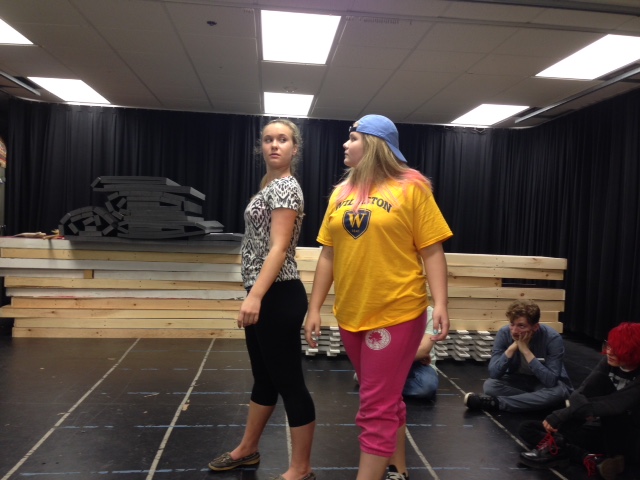The concept of “chorus” is familiar to us. Some of us have been in the chorus of a musical or sung in our school’s chorus. Very few of us, however, have acted in the chorus of an Ancient Greek tragedy. Like many other elements of theatre, the Greeks invented the concept of chorus. (Side note for theatre nerds, Greek history nerds, word nerds, or humans in general: the word “theatre” comes from the Greek word theatron which means “seeing place” and referred to the buildings where Greeks saw their beloved tragedies!) Originally made up of a group of twelve actors, the chorus was a critical component of Greek tragedy. They represented average Athenians and were often the voice of reason who sang and danced to make their voice heard.

The chorus of Trojan Women is different from their counterparts in Antigone or Oedipus. They are women who have suffered the same tragic losses as Hecuba, Cassandra and Andromache. Social status is less relevant in a refugee camp- all of the women are united in their experience of the Trojan War. The role of the chorus in this play is to engage in the ancient ritual of communal storytelling so we never forget the horrors of war. They take us back in time to the moment the Trojan Horse arrived on the shores and the moment when the Trojans knew the gods had abandoned them. It’s not unlike when we gather with friends to retell stories from important moments in our lives- whether they are happy or sad- retelling keeps us from forgetting and helps us process.

Regardless of what role the chorus plays in the storytelling, modern directors often put their own stamp on how they use them. The old-fashioned idea of twelve actors singing and moving in unison is cumbersome and alienating to audiences today. This asks directors to find new and innovative ways to use the chorus. Sometimes they are made up of the traditional twelve actors but the lines are broken up between them creating individual characters and sub-plots, sometimes the chorus is played by one singular actor who develops a unique character. In our play the chorus will be played by Emma Demerath ’19 and Anna Wilinsky ’17 who are already hard at work bringing the choral odes to life. Emma and Anna have built intricate backstories for these Trojan Women which involves a fierce urge to tell the story of how their Trojan culture was lost. Through a very human portrayal of their roles, we hope to humanize the chorus and create a modern interpretation that does what the Greeks intended- connects the audience to the story being told.

Euripides’ The Trojan Women comes to the Williston Theatre on October 15-17 and October 22-24 at 7:30 p.m. Reserve your tickets here.

